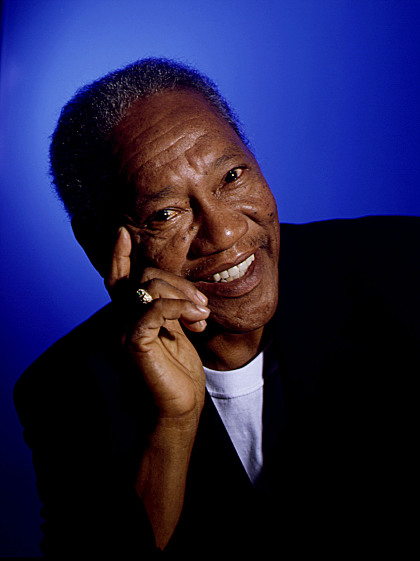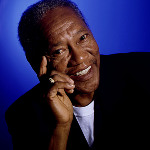
Songs
- country:Jamaica
- label:not signed
- type:Solo, Composer/Songwriter
- gender:male
- instrumentation:instrumental
- artist posted by:H.O.T.B Ltd
Links
Biography
As child, Ranglin had two uncles who played guitar and ukulele. After watching them play, he practiced on their instruments, and stood in for one of them when they failed to turn up for a recording session, impressing his other uncle so much that he was given the instrument for his seventh birthday. He built his own guitar using a sardine can and wires, before progressing to a real one. He moved with his family to Kingston, where he was educated at Providence, Kingston Senior School, and Bodin College. While still in his teens, he began performing live, locally and in the Bahamas, often with the young Monty Alexander. Charlie Christian was an early influence. Aged 15, he joined the Val Bennett band, and went on to play with the Eric Deans band and Count Boysie. By the early 1950s, Ranglin had become a proficient jazz guitarist and toured overseas. In 1958, Chris Blackwell recorded a Ranglin single, which was one of the first releases on Blackwell's R&B label, and a live album split between Ranglin and Lance Haywood was the first to be released by Blackwell. Around 1959, he joined Cluett Johnson's band the Blues Blasters, recording several tracks for Coxsone Dodd at Studio One, including "Shuffling Jug", regarded as one of the first ska recordings. In 1962, the James Bond film Dr. No was filmed in Jamaica. While Byron Lee & the Dragonaires appeared in the film, the soundtrack recordings were actually made by Ranglin. In 1964, Ranglin played guitar on singer Millie Small's "My Boy Lollipop", the first Jamaican song to achieve international success.
Ranglin recorded two jazz albums in the mid-1960s for the Merritone label - Wranglin (1964) and Reflections (1965), also working for Duke Reid as a musical director at the Treasure Isle recording studio during this period.
He began attracting international notice in 1964 when he traveled to London, England to perform at Ronnie Scott's jazz nightclub. He became the venue's resident guitarist for nine months, backing numerous guest artists and appearing in a recording of a Sonny Stitt/Dick Morrissey jam session in 1966. He made several solo records for Island Records, as well as collaborating with Prince Buster. He returned to session work, arranging songs such as the Melodians' "Rivers of Babylon" and playing guitar leads in the Wailers' "It Hurts to Be Alone".
During the late 1960s and the 1970s, Ranglin was much in demand as a studio musician and arranger, working with top Jamaican producers such as Dodd, Lee "Scratch" Perry, and Clancy Eccles. He also toured with Jimmy Cliff in the 1970s.
In 1973 he was awarded the Order of Distinction from the Jamaican Government for his contributions to music. He moved to Florida in the late 1970s, where he performed at jazz festivals and continued to record occasionally. He signed to Chris Blackwell's newly-formed Palm Pictures label to issue 1998's In Search of the Lost Riddim. The albums E.B. @ Noon and Modern Answers to Old Problems followed two years later. Grooving was released in early 2001. In 2002, he was awarded an Honorary Doctorate Degree from the University of the West Indies for his outstanding contribution to the development of music in Jamaica. In 2006, he was the subject of a documentary covering his career - Roots Of Reggae: The Ernest Ranglin Story, produced and written by Arthur Gorson. In 2008, he was inducted into the Jamaican Music hall of Fame by the Jamaica Association of Vintage Artistes and Affiliates (JAVAA).
Ranglin's fusion of jazz and reggae was continued by his nephew, Gary Crosby, who formed the group Jazz Jamaica in 1991.[


